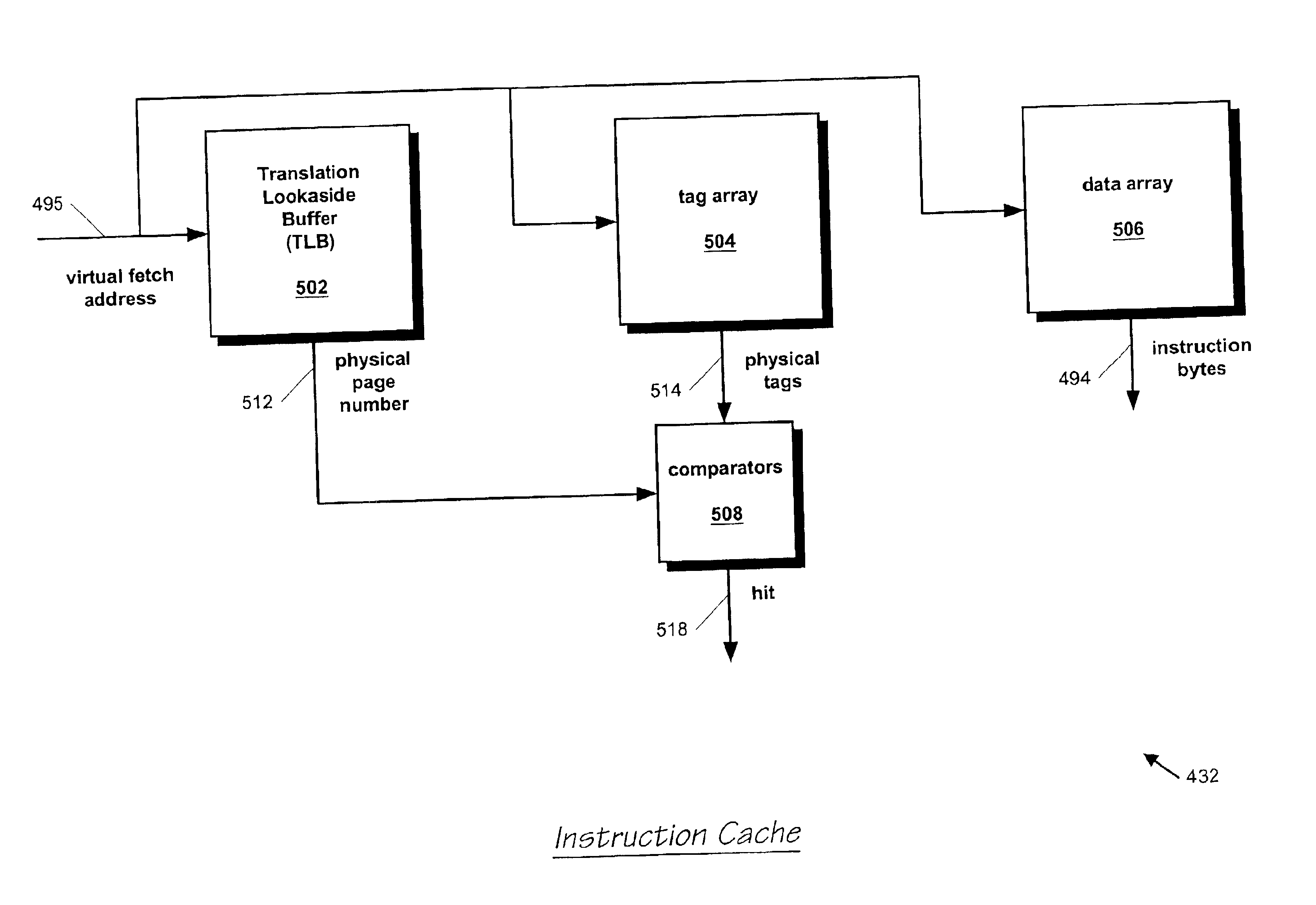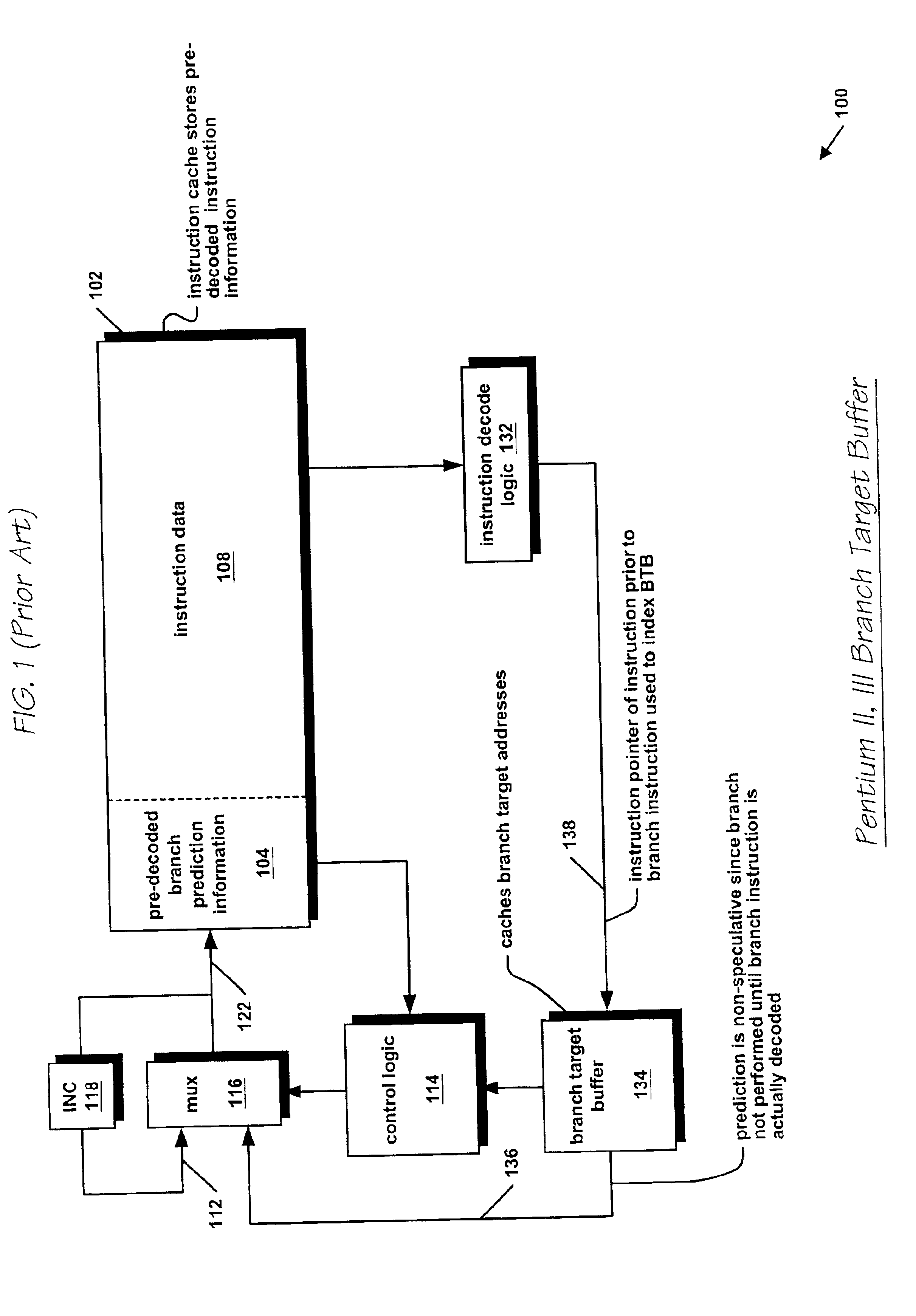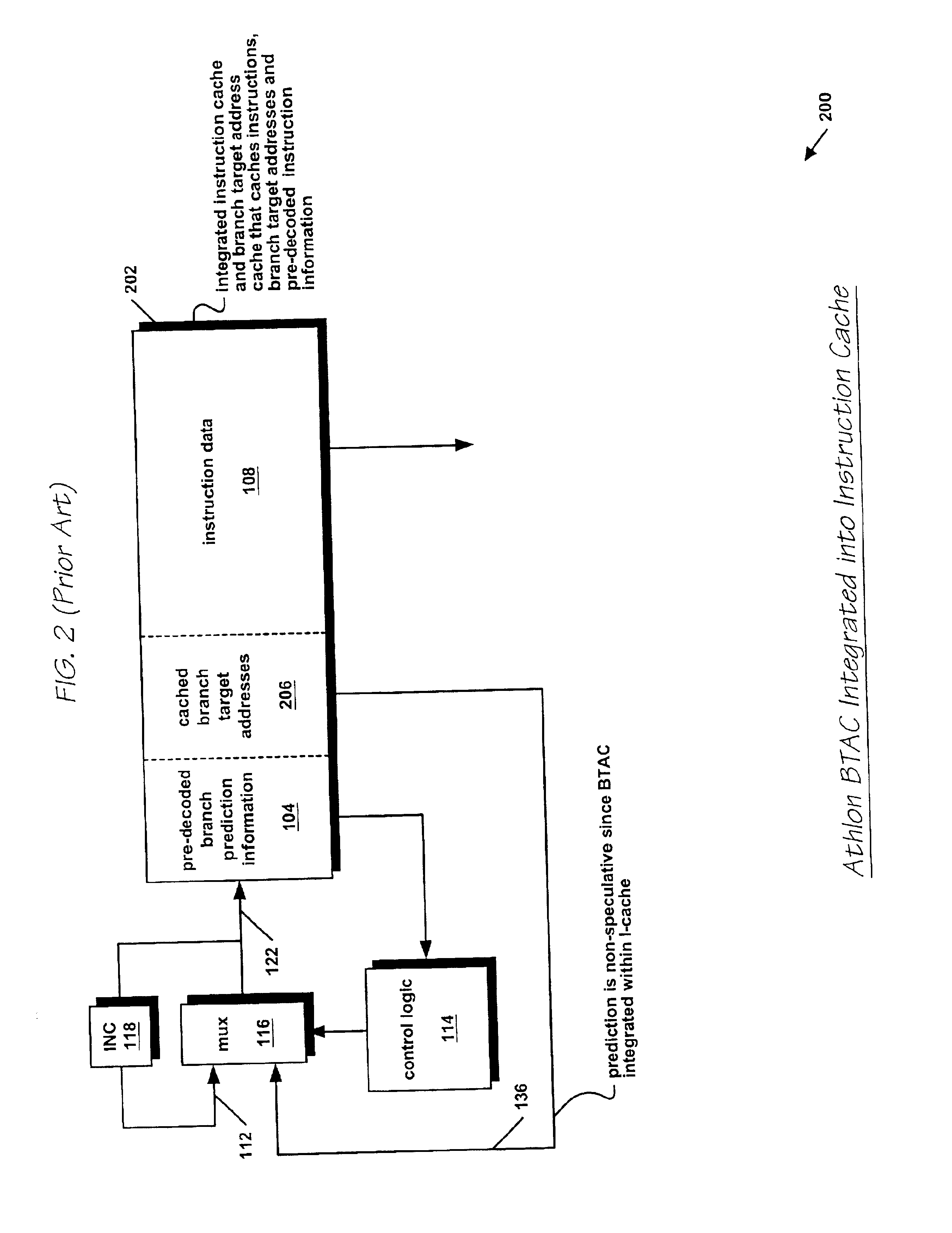Apparatus and method for target address replacement in speculative branch target address cache
a target address and cache technology, applied in the field of branch target address caching, can solve the problems of affecting the performance of the target address cache, the sequence of instruction execution is broken, and the modern microprocessor is not so simple, so as to facilitate the use of a single-port btac
- Summary
- Abstract
- Description
- Claims
- Application Information
AI Technical Summary
Benefits of technology
Problems solved by technology
Method used
Image
Examples
Embodiment Construction
[0054]Referring now to FIG. 3, a block diagram illustrating a pipelined microprocessor 300 according to the present invention is shown. The processor pipeline 300 includes a plurality of stages 302 through 332.
[0055]The first stage is the I-stage 302, or instruction fetch stage. The I-stage 302 is the stage where the processor 300 provides a fetch address to an instruction cache 432 (see FIG. 4) in order to fetch instructions for the processor 300 to execute. The instruction cache 432 is described in more detail with respect to FIG. 4. In one embodiment, the instruction cache 432 is a two-cycle cache. A B-stage 304 is the second stage of the instruction cache 432 access. The instruction cache 432 provides its data to a U-stage 306, where the data is latched in. The U-stage 306 provides the instruction cache data to a V-stage 308.
[0056]In the present invention, the processor 300 further comprises a speculative branch target address cache (BTAC) 402 (see FIG. 4), described in detail w...
PUM
 Login to View More
Login to View More Abstract
Description
Claims
Application Information
 Login to View More
Login to View More - R&D
- Intellectual Property
- Life Sciences
- Materials
- Tech Scout
- Unparalleled Data Quality
- Higher Quality Content
- 60% Fewer Hallucinations
Browse by: Latest US Patents, China's latest patents, Technical Efficacy Thesaurus, Application Domain, Technology Topic, Popular Technical Reports.
© 2025 PatSnap. All rights reserved.Legal|Privacy policy|Modern Slavery Act Transparency Statement|Sitemap|About US| Contact US: help@patsnap.com



